Thesis
Compassion is the experience of inclusiveness and sharing, inquiry and sharing, humility and forgiveness, honesty and trust, generous reflection and kind humour. These qualities provide the requisites for each of us to enjoy the state of science, which in turn enables us to develop all manner of sustaining arts(skills) i.e. civics.
The Physics of Compassion
The Conservation of Energy Principle reminds us that energy is constant even as it continuously transforms. It is neither created nor destroyed and all forms of energy are finite, including all sentient forms such as human beings.
Information is physical. All forms are momentary balances in the universal flux of transformation and all are paradox, simultaneously being informed by all even as they inform all.
All living forms, including human beings, are sentient in this information flow. Every cell consciously interacts with it, simultaneously attempting to interpret the flow and adapt its behaviour to it so as to sustain its unique balance of energy, enjoy harmony and perpetuate its species. These interactions can be manifest from chemical, electrical, thermal or other perspectives.
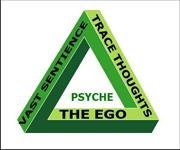 It is not possible to know the nature of the consciousness of all sentient beings. However we can understand the human psyche as a complex, dynamic system consisting of a vast sentience, a trace self-awareness and their active interface -the ego or “I”.
It is not possible to know the nature of the consciousness of all sentient beings. However we can understand the human psyche as a complex, dynamic system consisting of a vast sentience, a trace self-awareness and their active interface -the ego or “I”.
Pain and Misery of The Ego
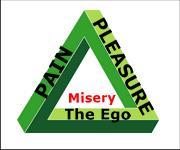 The nature of the ego is discussed in more detail here. In brief, the ego is characterized by
The nature of the ego is discussed in more detail here. In brief, the ego is characterized by
(a) fragmentation and division
(b) ingenious denial of reality i.e. the continuous universal transformation and our role as stewards amidst the flux.
The ego can impact and move our thought process in incredible and destructive ways.
It can easily make us our own worst enemy and is a major source of pain and misery. Exclusive and acquisitive, it makes us arrogant, envious and greedy.
It promotes maladaptive behaviour such that our actions are in painful discord with the forces that sustain us.
It fills us with constant existential terror of our mortality and so diminishes our joy in living. Born of division, the ego tends to alienate us from the cosmos in painful ways.
The Sustaining Power of Compassion
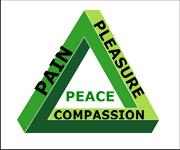 Compassion’s qualities of inclusiveness, sharing, truthfulness, humility, forgiveness and inquiry complement the psychopathy and psychosis of the ego. However the ego has no equal of compassion’s quality of kind humour because it is
Compassion’s qualities of inclusiveness, sharing, truthfulness, humility, forgiveness and inquiry complement the psychopathy and psychosis of the ego. However the ego has no equal of compassion’s quality of kind humour because it is
The quality of kind humour involves a dispassionate state that enables us to observe, embrace and transcend the ego’s most incredible deceits. It also involves sensations of forgiveness, a vital requisite for sustainable learning to occur. It thus opens us to ways of living in greater harmony with the flows and balances that sustain humankind. In other words, compassion is the source of civics.
Science of Compassion

Wiki provides this example of the modern definition of science:
“As a slow process over centuries, the word “science” became increasingly associated with what is today known as the scientific method, a structured way to study the natural world.”
However we arrive at a profoundly different definition if we ask what are the requisites for “science” to be a sustaining symbol. Deeper reflection reveals science ceases to be if any of the following qualities are absent: inclusiveness and sharing, inquiry and sharing, humility and forgiveness, honesty and trust, generous reflection and inquiry plus kind humour.
For instance, copyright and paywalls prevent sharing and peer-review.
For instance, the thought process cannot transcend the trickery of the ego or paradox and this restricts inclusiveness and inquiry.
For instance, without kind humour for the human condition, the ego can easily can have us make deceitful, even self-destructive use of knowledge.
In other words, science is more than just a way of thinking and an exclusive body of knowledge, the domain of a small elite of “scientists”. Rather it is a profound moral way of being arising from the qualities of compassion that informs every moment of our lives. This state of being enables all manner of sustaining arts (skills) i..e. civics.
Physics of True Hope
We live a paradox of information: our use of a symbol simultaneously reflects and generates our state of being.
The ego thrives in paradox and it generates a dense veneer of seeming chaos within this particular paradox of information. However the human psyche is actually very consistent, in accord with the constants of the principles of physics. These principles, in particular the Conservation of Energy Principle, provide both the means for evaluating the sustainability of our language and for rectifying our behaviour.
See the WISE ENGLISH GUIDE. for practical examples of how we can employ the principles of physics to transcend this paradox of information and ensure our English is founded in true hope rather than delusive hope.
Compassion and the Anglosphere
A few corporations of the Anglosphere have controlled most global trades and English has been the dominant language of international commerce for over a century now. There is considerable evidence that the Anglosphere culture has probably been the prime driver of the Anthropocene that now imperils all human kind. For instance, analysis of modern English reveals a widespread syndrome of denial of the principles of physics consistent with ego-driven habits of extreme waste, pollution and the unprecedented destruction of vital minerals, soils and biodiversity.
The diagram below illustrates the etymology of some of the English words primarily associated with compassion .
Principle source: Online Etymology Dictionary
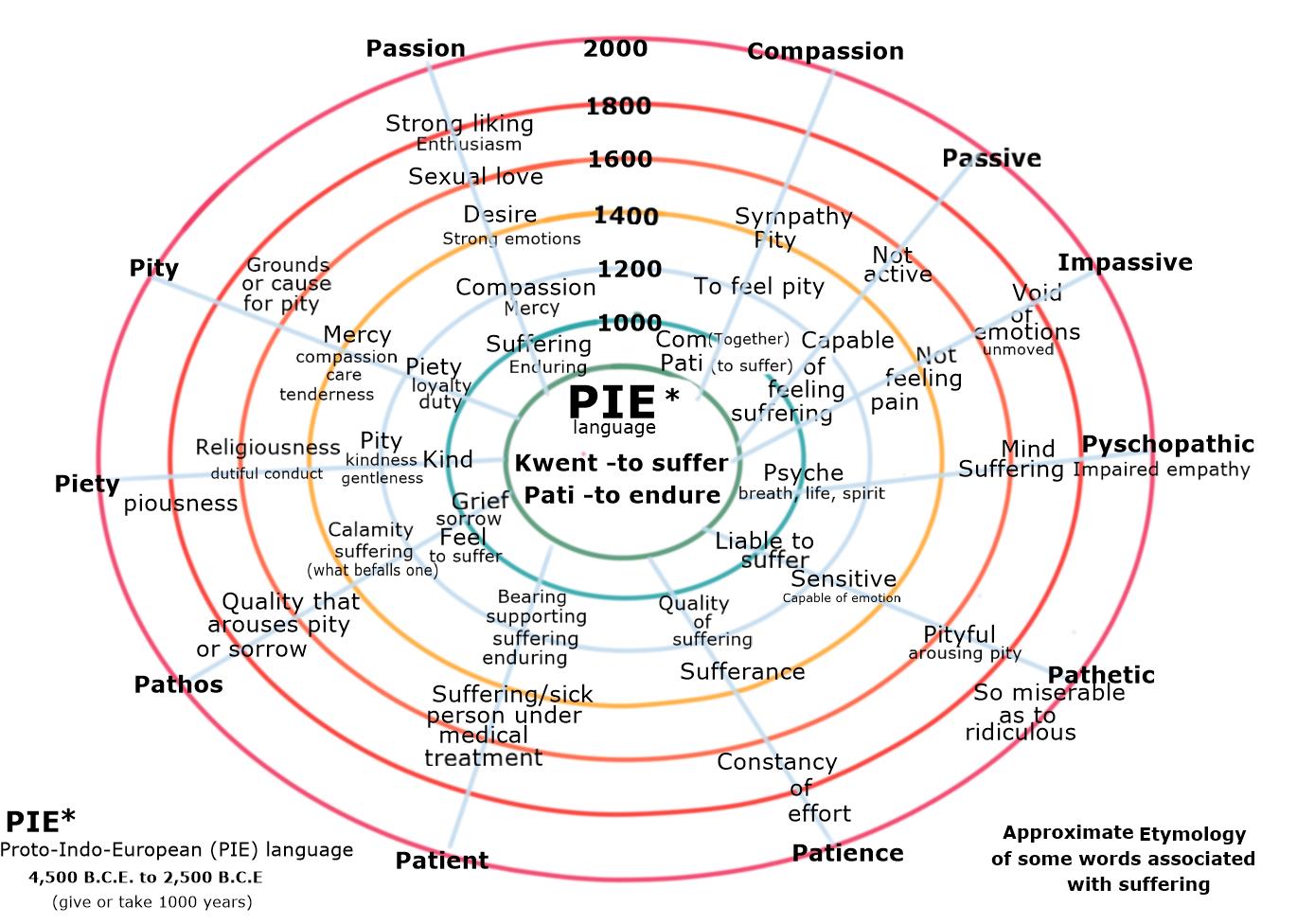
Observe the common origins of these words of compassion – their inherent recognition of our common experience of pain and suffering. Also observe how this past four centuries our use of them ceases to remind us of the pain all sentient beings experience in the universal transformation and our roles as stewards in this flux of suffering. This facilitates, for instance, our activities causing mass extinctions of species.
Some words have even become means of exacerbating suffering. They are now used to denigrate and express disgust for our fellow beings, as in “I pity you -you are so pathetic, deserving of ridicule” and “Oh, you are just so pious – pompous and virtuous, condescending…”
The word “compassion” retains much of its original meaning though often it is conflated with a few of its many qualities and is associated with liability and weakness of character. However, in general, this most vital of symbols is relegated to obscurity in Anglosphere culture:
General society – it is very rare to hear mention of compassion in daily discourse.
Media – there is no mention of compassion in Commerce (Business, Market) discourse, little mention in Current Affairs and, in general it is relegated to obscure sections such as Religion or Spiritual Matters.

Education- A search the National and State Education Curriculum Frameworks of Britain, Canada, USA, Australia and New Zealand (Blue nations) reveal no mention of “compassion”. The few mentions discovered are buried deep in subtext and “Science’ is multilaterally framed in denial of compassion.
Government- Internet searches of Anglosphere Governments reveal a wide range of Ministers and Ministries of Government, including Ministries of Energy. However there is not a single link to a Minister or Ministry of Compassion. For instance:
……………………………………………………………………………………………………………………….
https://www.govt.nz/search?q=compassion
Sorry, nothing on Govt.nz matches your search.
……………………………………………………………………………………………………………………….
Summary
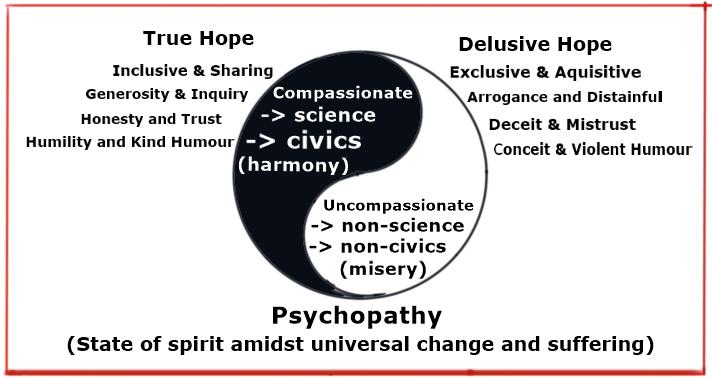 All sentient beings experience some form of pain, It may be pain from internal processes of the organism, exterior forces (heat, gravity etc) or from the registration of pain in other beings. Each being has its unique learning response to pain and this may vary from sustaining to destructive.
All sentient beings experience some form of pain, It may be pain from internal processes of the organism, exterior forces (heat, gravity etc) or from the registration of pain in other beings. Each being has its unique learning response to pain and this may vary from sustaining to destructive.
Human beings are no exception Our response to the universal condition of suffering is confounded by the ego that resides in us all. It denies the reality of universal transformation with ingenious deceits and delusive hopes. However with compassion we can transcend its trickery and enjoy true hope.
Last revised 30 Nov 2017
Wise English Guide
A Compassionate Education Framework
